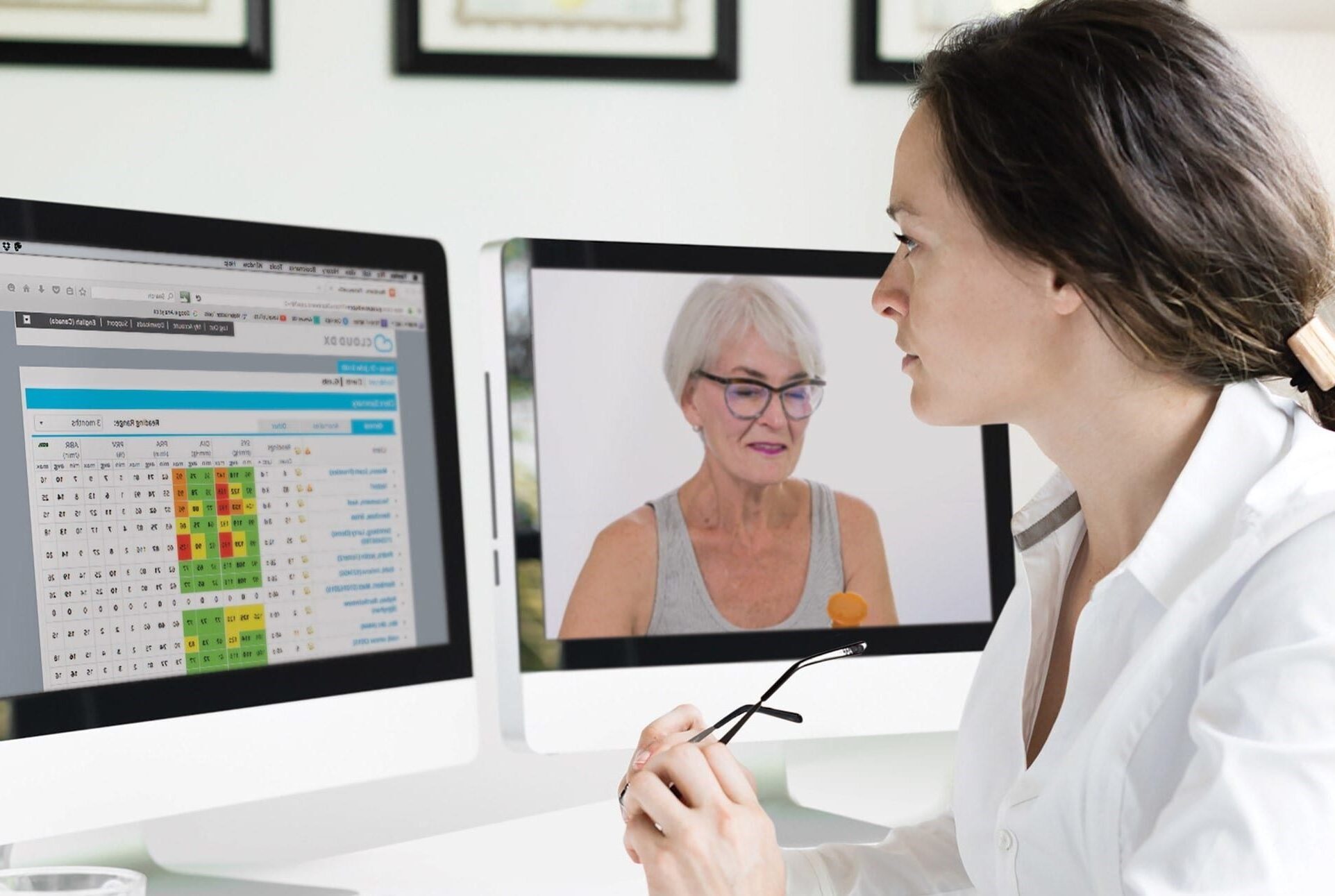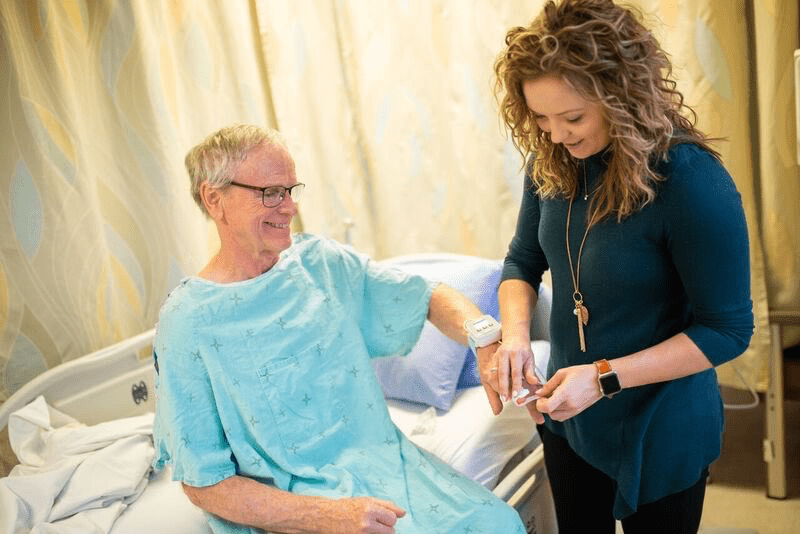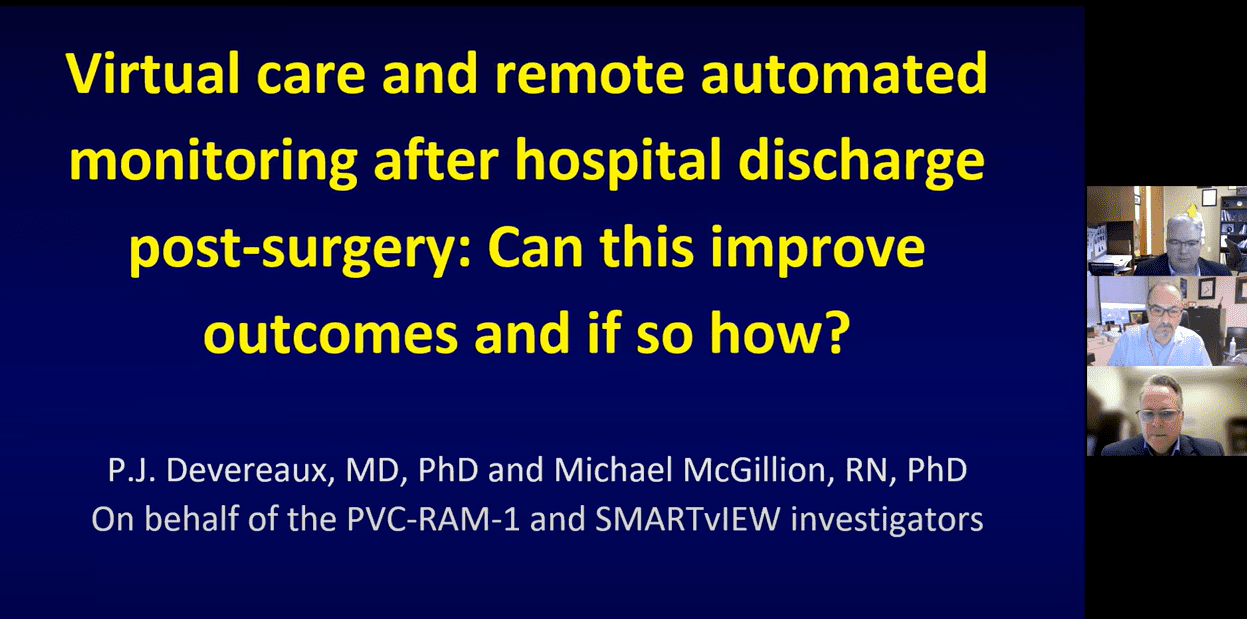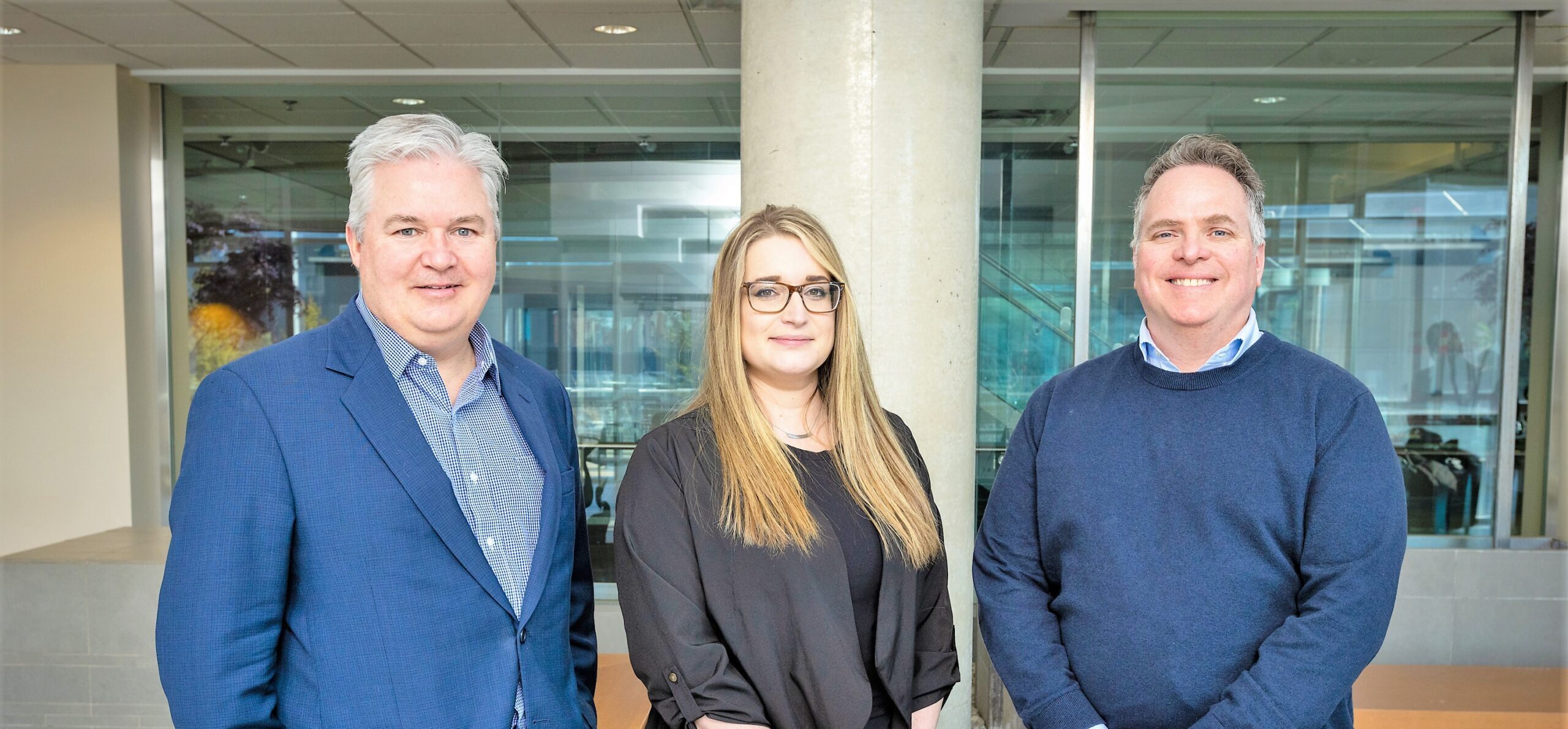Interacting with patients by computer, phone or apps, virtual healthcare can consist of: sharing patient information (symptoms, medication review); education (informing patients about signs of illness); and management (a recommendation to seek medical attention; physician submitting a drug prescription).
The science of virtual care and remote automated monitoring (RAM) is a burgeoning field of study. While digital transformation of healthcare holds great promise, a lack of robust research and data – and inadequate scaling of health technology interventions (such as mostly pilot studies) – have been barriers to date.
PHRI’s work to date is leading the way in overcoming challenges to allow virtual care with RAM to achieve its promised potential. Those challenges include: patient and clinician discomfort with technologies for virtual care; underdeveloped intervention workflows; lack of integration of RAM data into meaningful action for frontline clinicians; cybersecurity threats; and failure to integrate data with electronic medical records.





















 PJ Devereaux, Valerie Harvey, and Mike McGillion
PJ Devereaux, Valerie Harvey, and Mike McGillion  The Digital Health program team
The Digital Health program team